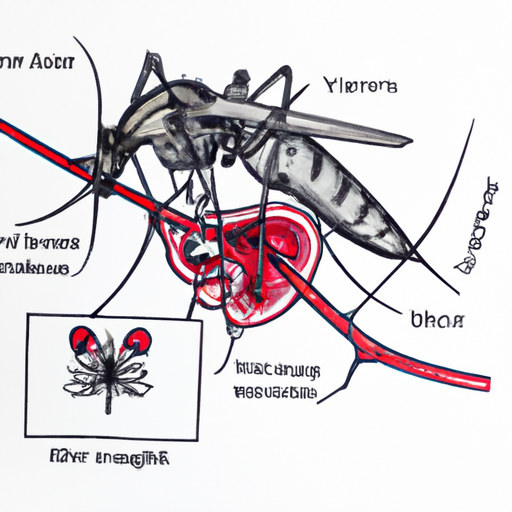“`markdown
Where Do Dogs Get Heartworm?
1. Understanding Heartworm Disease in Dogs
As a caring dog owner, you are likely aware of the many health concerns that can affect your furry friend. One of the most severe yet preventable diseases is heartworm. This parasitic infection, caused by the Dirofilaria immitis, is spread through the bite of an infected mosquito. Once inside a dog’s body, heartworm larvae migrate to the heart, lungs, and blood vessels, where they grow into adult worms. Over time, these worms can cause severe damage to these vital organs, leading to life-threatening complications.
2. The Role of Mosquitoes in Heartworm Transmission
You might be wondering, “How exactly do dogs get heartworm?” Well, the answer lies in mosquitoes. When a mosquito bites an infected dog, it picks up baby worms, or microfilariae. After about two weeks inside the mosquito, these microfilariae develop into infective larvae. When this mosquito bites another dog, it injects these larvae into the dog’s body, starting the cycle anew.
| Stages of Heartworm Development | Time Frame |
|---|---|
| Mosquito bites infected dog | Initial stage |
| Microfilariae develop into infective larvae | 10-14 days |
| Mosquito bites another dog, injecting larvae | Transmission stage |
3. Geographic Hotspots for Heartworm Disease
While heartworm disease has been reported in all 50 states, certain areas pose a higher risk than others. The disease is most common in the Southeast, particularly along the Mississippi River and in the Gulf Coast states. However, heartworm disease is not exclusive to these areas; a number of factors, including climate, mosquito population, and presence of infected animals, can contribute to heartworm risk in any location.
4. Prevention is Better Than Cure
As a caregiver, your first instinct is to protect your dog from harm. The good news is, heartworm disease is preventable. Several medications are available that can effectively prevent heartworm disease in dogs. These medications work by killing the heartworm larvae before they have a chance to mature and cause damage. It’s crucial to administer these medications as directed by your veterinarian, as missing even one dose can leave your dog vulnerable to infection.
- Monthly oral tablets
- Topical medications applied to the skin
- Injections that provide protection for up to six months
5. Frequently Asked Questions About Heartworm in Dogs
Q: Can humans get heartworm from their dogs?
A: No, heartworm disease is not directly transmissible from dogs to humans.
Q: Can my dog get heartworm disease in the winter?
A: Yes, as long as mosquitoes are active, there’s a risk of heartworm infection.
Q: Do indoor dogs need heartworm prevention?
A: Absolutely, indoor dogs are not completely safe from mosquitoes and thus, should be on preventive measures.
Q: How often should my dog be tested for heartworm?
A: It’s recommended that dogs be tested annually, even if they are on preventive medication.
Q: Can heartworm disease be treated?
A: Yes, heartworm disease can be treated, but it’s a complex and costly procedure. Prevention is always the better option.
“`



